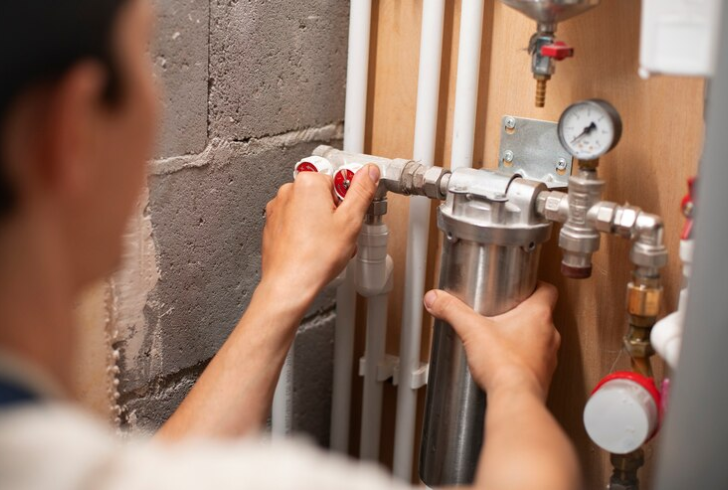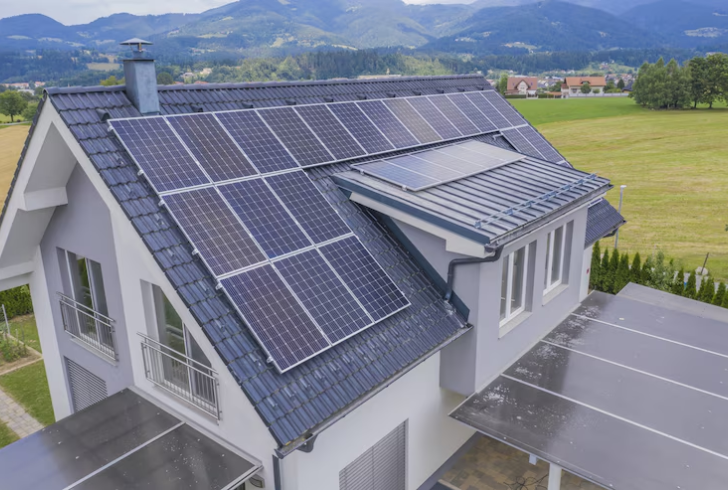The Silent Threat: Gas Leaks
One of the most about reasons for a sudden spike in your gas bill is a gas leak. Several causes can contribute to these breaches, including:
- Aging appliances: Over time, gas appliances can develop cracks or leaks.
- Poorly installed equipment: Incorrect installation can lead to gas leaks.
- Rodent damage: Nuisance animals can chew through gas lines.
- Natural disasters: Extreme weather events can damage underground gas lines.

Image by freepik | Gas leaks can cause a dangerous spike in your bill and should be addressed immediately.
What to do: If you smell a rotten egg odour, hear a hissing sound, or notice a drop in water pressure, it's crucial to evacuate your home immediately and contact your local gas utility. Gas leaks are a serious safety hazard and should never be ignored.
Beyond the Basics: Other Factors
Even if there's no gas leak, several other factors can contribute to high gas bills:
- Inefficient Appliances: Old, outdated appliances can consume more energy than newer, energy-efficient models. When it's time to replace them, consider upgrading to energy-star-rated appliances.
- Poor Insulation: Inadequate insulation allows heat to escape your home, forcing your heating system to work harder. Invest in proper insulation for your attic, walls, and foundation.
- Drafty Doors and Windows: Air leaks can significantly increase your heating costs. Seal drafts with weatherstripping and caulking.
- Thermostat Settings: Overheating your home can lead to higher gas bills. Set your thermostat to a comfortable temperature and avoid excessive fluctuations.
- High Gas Rates: If your gas supplier offers variable rates, your bill may fluctuate based on market prices. Consider switching to a fixed-rate plan for more predictable costs.
- Unnecessary Usage: Habits like leaving appliances on standby or running the dishwasher half-full can waste energy.
Taking Action to Reduce Your Gas Bill
Here are some practical steps you can take to lower your gas consumption and save money:
- Regular Maintenance: Schedule regular maintenance for your heating system, water heater, and other gas appliances. Proper maintenance can improve efficiency and prevent costly repairs.
- Energy assessment: Hire a professional to undertake a home energy assessment. They can identify areas where you're losing energy and recommend improvements.
- Smart Thermostat: A smart thermostat can learn your habits and adjust the temperature accordingly, helping you save energy and money.
- Energy-Efficient Habits: Develop energy-saving habits, such as turning off lights when not in use, taking shorter showers, and using energy-efficient appliances.
By addressing these common causes and implementing energy-saving measures, you can significantly reduce your gas bill and enjoy a more comfortable and cost-effective home.

Image by wirestock on freepik | Proper maintenance of solar panels is essential to ensure they operate efficiently and reduce gas consumption.
Factors Affecting Your Gas Bill
While we've covered some of the most common culprits of high gas bills, there are a few more factors that can contribute to increased energy consumption:
- Phantom Loads: Electronics and appliances that are plugged in, even when not in use, can draw a small amount of power, known as phantom loads. Unplug devices when not in use to reduce energy consumption.
- Solar Panels: If you have solar panels installed, ensure they are properly maintained and functioning optimally. Dirty panels can reduce their efficiency, leading to higher gas consumption.
- Lifestyle Changes: Recent changes in your household, such as adding a new family member or working from home more frequently, can increase your energy needs.
- HVAC System Size: If your heating and cooling system is too large or too small for your home, it may not operate efficiently. A professional can help determine the appropriate size for your needs.
- Geographic Location: Your location can impact your gas usage. Homes in colder climates typically need more heating, resulting in higher gas bills.
A Comprehensive Approach to Energy Efficiency
It's essential to take a comprehensive approach to effectively addressing high gas bills. By considering all the factors that can influence your energy consumption and implementing appropriate measures, you can significantly reduce your costs and contribute to a more sustainable future.





